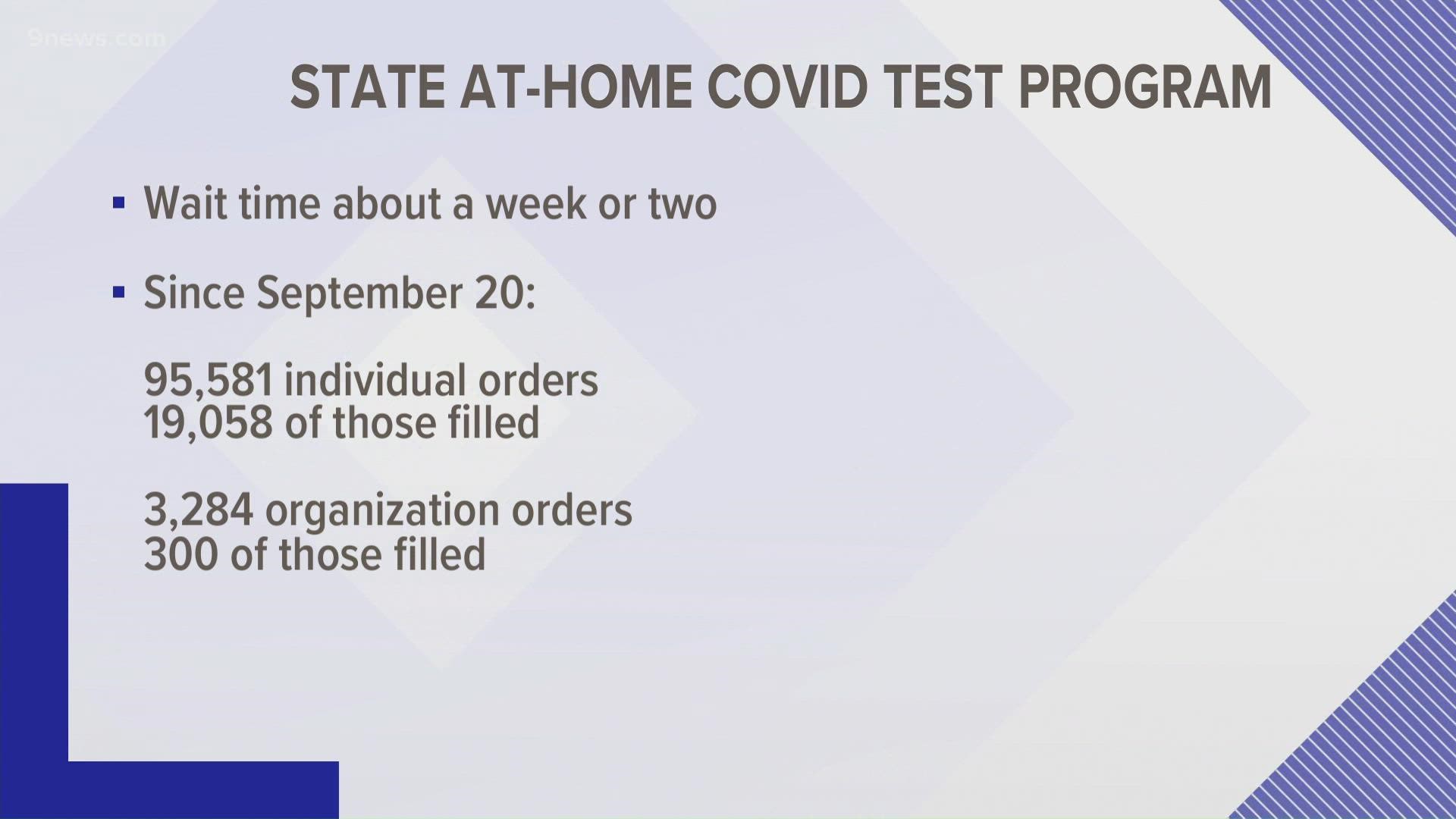DENVER — On Wednesday, the White House announced plans to increase COVID-19 testing capacity by drastically increasing the number of rapid, at-home testing kits available on the market.
The Biden administration announced a $1 billion purchase of the tests, which would triple the number available by November and quadruple the number available by December. That would allow for 200 million tests per month in the U.S.
At-home tests can be hard to find in stock at Colorado pharmacies.
On Wednesday, 9NEWS found several stores in the Denver metro area listing the kits in stock. When we called to verify, most stores did, in fact, have kits in stock, but said they were in high demand and often sold out quickly. Some stores that listed as “in stock” online ran out of supply in store before the website could be updated.
Last month, the Colorado Department of Public Health and Environment (CDPHE) announced an expansion of the rapid at-home COVID-19 testing program to include parents, guardians and caregivers wishing to test children and “help keep schools open.” The program was also opened to any Coloradan who wanted to sign up for the program. CDPHE said this program is designed for regular screening, and recommends anyone with symptoms or with an exposure to COVID-19 visit a community testing site instead.
But quickly, supply outpaced demand for the at-home kits.
Since the program launched Sept. 20, CDPHE said the state has fulfilled 19,058 individual orders (of the 95,581 orders made) and fulfilled 300 orders to organizations (of 3,284 organization orders made). CDPHE said they have inventory to fulfill another 28,000 orders, and they fill orders as inventory arrives.
It currently takes seven to 14 days for someone to receive their kit after order. CDPHE said inventory for this program is “separate from other programs like employer programs or school testing.”
When asked if the state anticipated the demand before offering at-home tests for the public, and if so, why that decision was made if the state couldn't meet demand more quickly, CDPHE responded in an email Wednesday:
"We are excited that so many Coloradans have signed up for at-home testing. Serial testing is one of many strategies that can be layered to help us mitigate the spread of COVID-19. The state of Colorado has offered free, at-home testing since last winter. Demand for the at-home testing program throughout the spring was low, but increased in August and September. The at-home testing program is separate from other programs like employer programs or school testing. The supply of one program doesn’t affect the other programs. We have been grateful for the response to the at-home testing program and are responding to demand. We always knew the program would be one option among many. Throughout the pandemic, we have always diversified tactics and strategies. Rapid At-Home tests are designed for regular screening. If someone has symptoms, believes they have been exposed to COVID-19 or needs immediate testing, we recommend they visit one of the more than 120 free community testing sites across the state that do not require identification or insurance."
If the White House's goal to boost the supply of rapid at-home tests works, and if Americans can start to find the kits more easily, 9Health expert Dr. Payal Kohli said it’s important to use this test only when circumstances make the most sense.
“The test performs the best in people who have symptoms,” she said. “Because by the time you’re having symptoms, you probably have enough virus inside of you that the test is likely to pick it up as positive.”
Kohli said most of the rapid, at-home tests are antigen tests – not the gold standard PCR tests. She said these at-home rapid kits can be useful, as long as the user gets a good specimen and understands the test’s limitations.
She gave a few examples of when a rapid, at-home test could be a good option:
“You wake up, you’re having some symptoms, not sure if should go into work or not. If you get a negative test in setting of symptoms then you may still want to confirm with a PCR, but you feel pretty good that the performance of that test is likely to be trusted," she said.
Or, “You’ve been exposed to somebody who turns out to have COVID, and your incubation period has passed. Its been at least three to five days since exposure, and you want to see whether or not you might be positive.”
Or, “You just had COVID yourself. Your symptoms resolved. You want to see if you’re now testing negative so you can come out of quarantine and be close to other people again at your house.”
Kohli said still, the best way to protect yourself is with the COVID-19 vaccine. She said at-home testing is just another tool in the toolkit during this pandemic.
“My vision is that one day, we have a test that performs as well as the PCR test at home, and it’s a test we could use – each one of us – test ourselves every morning as we leave our house. So we're really able to know with confidence that the negative predictive value, if we test negative, that we're likely not spreading the infection," she said.
“We really want to start leaning upon this testing as a way of life, as a way to keep ourselves safer, our activities safer, and use it frequently to try and do things we want to do," Kohli said.
SUGGESTED VIDEOS: COVID-19 Coronavirus

